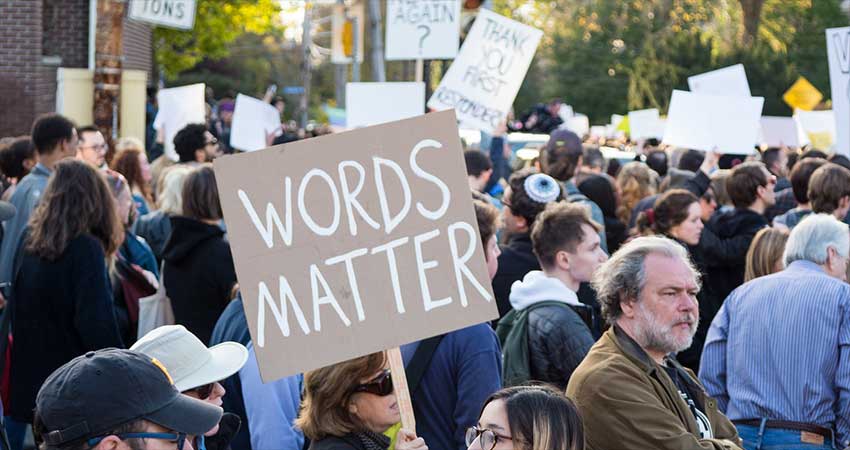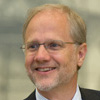
In the crisp night air I walk the few blocks from my house toward the makeshift memorial outside the Tree of Life Synagogue. It is somehow reassuring that the approach from Wilkins Avenue is still blocked to traffic, still populated with police cruisers with their lights slowly flashing and news trucks with their impossible satellite dishes pointing into the strobe-lit sky. At least the world hasn’t moved on yet, I think. At least we still have this time to remember.
Before leaving the house, I spoke by phone with my mother in California, who is writing a memoir of surviving the Nazi occupation of her native Amsterdam. I shared with her how, in a meeting with my team at work that morning, many had cried and expressed helplessness and despair—over the killings at the synagogue, over the indiscriminate hatred that drove it and that runs so deep in our culture, over how infuriatingly familiar it all feels to the African-Americans around the table, over the suffering it has caused generations of those whose only sin was to be vulnerable. We have these privileged roles, to spend our days trying to end that, yet right now we felt so useless.
“No despair,” she told me. “I’m writing right now about people who fought even though they were starving, grieving, occupied, spied upon and could be killed at any moment. But they did what they could, whatever they could, in whatever measure they could. They didn’t have room for despair.”
Her words stick with me as I walk. How would it serve the people who died in this massacre, and who yet will die in the next inevitable round of this madness, or in the round after that, to ever say we are too broken to continue the fight? As a member of my team said in a different context recently, “Hopelessness is toxic. When people lose hope, they lose.” There is no room for us to lose heart. The feeling is natural but dangerous.
At the memorial on Shady Avenue, which has reopened now, police officers and wooden barricades guard the mourners from the passing traffic as they stand along the sidewalk outside the synagogue. I stop to pay my respects in front of the eleven Stars of David, each with a name on it, and linger there longer than I expect to. The stars, each marked with a heart, rise with a kind of proud clarity from a carpet of flower bouquets and flickering candles, and on the ground all around are strewn the stones with which Jews mark their visits to the dead.
Behind me a young woman weeps inconsolably, held upright by the strong arms of her equally young friend. The mourners around us give her space to grieve but hold her in their presence and in their sympathetic gazes. Across the street music plays, a melody I don’t recognize but that is sad and mesmerizing and penetratingly lovely.
A few handwritten signs are scattered among the offerings and tributes. A small card vowing, against all apparent evidence, “Love wins.” A larger one declaring, “Hate & violence are NOT the answer.” Over that, three small signs shaped liked doves offer, “We love you,” “We belong to each other,” and “We are strangers together.” That third sign captivates me, and I only discover later, after I wander down to the Starbucks on Forbes to reflect and look at the photo I took on my phone, that I read it wrong. “We are stronger together,” it says.
Beautiful either way, I think. Stronger together, strangers together—isn’t that what we learn in life, if we live at all well? We are all strangers in this world, sometimes even to ourselves, until we finally find our place of belonging in love and in community. Our country has a sick and delusional fascination with loners, but it is in belonging to each other that we find liberation.
On the photo I notice that a yellow line runs across the top of the frame. Police tape. “Do not cross,” it warns. In the background beyond the tape is the synagogue, dark and indistinct. Evil happened here, and it is hard for me, looking at that photo, to see how the memory of it will ever be evicted from inside those walls. But something about those doves tells me not to dwell there.
The next evening, walking again back on Forbes, I come across a sit-in of a couple hundred young people blocking the street and singing. They are about as threatening as any church choir, but they are surrounded by a phalanx of police officers in riot gear, who stand like troops at the ready. No one on either side is uncivil. Passersby applaud the protestors and salute the police for their bravery and service. Right now, we seem, many of us, to hold both the activists and law enforcement in our hearts together.
The show of force and riot gear are unsettling, though. An older woman walks up to an officer, introduces herself by name, and asks, “Why are all these officers here, this show of force? Is this really necessary?” But the President has come to town on the day the funerals have begun, which means the rules have changed.
My wife is away on business and I am due at dinner with friends, but again I stop for a while to listen to the protestors. A young woman, presumably one of the leaders, tells them they have a long journey in front of them, but they must stick with it. God bless the young.
Everyone I know in this town right now is either going flat out to help our community mourn and recover or desperately trying to find a way to contribute. We look to answer the short-term call for aid and the long-term call for change. Not just here: colleagues from around the country have reached out asking how they can help Pittsburgh. My mind won’t stop spinning, won’t rest, but for a few minutes the circle of young activists draws me into stillness.
They begin singing a refrain that has become a kind of freedom song. “When the world is sick,” they chant softly, “Can’t no one be well. But I dreamt we was all beautiful and strong.”
Over and over they repeat it, until finally it seeps in. As long as we condone the sickness that divides us, the illusion of difference, no one is safe or well in this world, including those who so mistakenly think their power and their privilege will exempt them. On a warming, interconnected planet, in a country riven by hate, their walls will be remembered as the height of human folly.
We are all vulnerable, all hurting. But we can imagine a future beautiful and strong, a future where we really are stronger together, no longer strangers. Where love really does win. And the work is to lean into that dream without despair at precisely the moment when despair most wants to take root.
And there, for a time, between a small group of young people softly singing and police in riot gear, I find some small measure of peace and whisper thanks.
Written by:

Grant Oliphant
President
